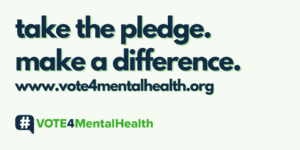**To inquire about chapter sponsorship of your registration fee please email Jessica Toy at [email protected]
Plenary Presentations:
Ally Training – Penelope French, Public Training Manager, The Trevor Project
Description:
The Trevor Ally Training provides a basic framework for understanding lesbian, gay, bisexual, transgender, queer and questioning (LGBTQ) youth and the unique challenges they often face. This training is designed to create dialogue regarding what it means to be an ally for LGBTQ folks by informing participants about terminology used in the LGBTQ community, the process of “coming out” as an LGBTQ person, and a discussion of the challenges faced by LGBTQ folks in their homes, schools and communities. Through activities participants are encouraged to explore their own biases, build their knowledge and understanding and develop empathy through an intersectional lens. In addition to providing this framework, the Trevor Ally Training offers specific action items to improve the environment for LGBTQ people.will set the stage for discussion of future research needs, interventions, and prevention.
Learning Objectives:
-Discuss the services offered by The Trevor Project and how youth can access them
-Describe what it means to be an ally
-Describe various terminology related to LGBTQ communities
-Identify unique challenges facing LGBTQ people
-Identify ways to create safer and more supportive environments for LGBTQ people
-Identify ways to combat bias in yourself and your community by developing cultural awareness and sensitivity
Understanding and Preventing Suicide in LGBT+ Communities – Jody Herman, Ph.D.
Description:
In recent years, suicide among transgender people has been spotlighted in the media and in public policy debates over transgender people’s rights, including access to gender-affirming health care. Yet, little is known about the unique causes of suicide among transgender people and ways to prevent it. In recent years, suicidality among transgender people has become an emerging area of research, with scholars focusing on the prevalence of suicidal thoughts and attempts and factors that may explain an elevated prevalence of suicidality in this community. Scholars have also examined those factors that appear to be protective against psychological distress and suicidality. More research is needed to better understand the various factors that contribute to suicidal thoughts and behaviors among transgender people, and to design and evaluate interventions that can prevent suicide. In this session, Dr. Herman will provide an overview of the current state of the research on suicide among transgender people, including new research on suicide risk, the impact of gender affirmation on reducing suicide attempts, and what is currently known about promising interventions. This overview will set the stage for discussion of future research needs, interventions, and prevention.
Learning Objectives:
-Following this session, attendees will be able to describe the prevalence of suicidal thoughts and attempts among transgender people, discuss the unique risk factors for suicidal thoughts and attempts among transgender people, and outline what is known about promising interventions.
Let’s Talk About Sex (because the silence is killing us) – Jeremy Goldbach, Ph.D., LMSW
Description:
Risk for mental health and suicidality among sexual and gender minorities in the U.S. is significantly greater than the general population. Largely these outcomes are attributed to the presence of minority stress and discrimination related to the silencing of one’s sexual and gender identity, othering and isolation. Through a story-telling approach, this talk invites participants to consider how we might approach conversations around sex and sexuality, not only to allow space for SGM people to thrive, but for all of us.
Learning Objectives:
-Discuss factors that may influence suicidality among LGBTQ Youth that are less commonly considered in intervention
-Identify novel strategies for intervention with LGBTQ youth that include open dialogue
-Explore specific individual approaches participants can take to reduce suicidality for LGBTQ youth in both clinical and non-clinical (community) settings


